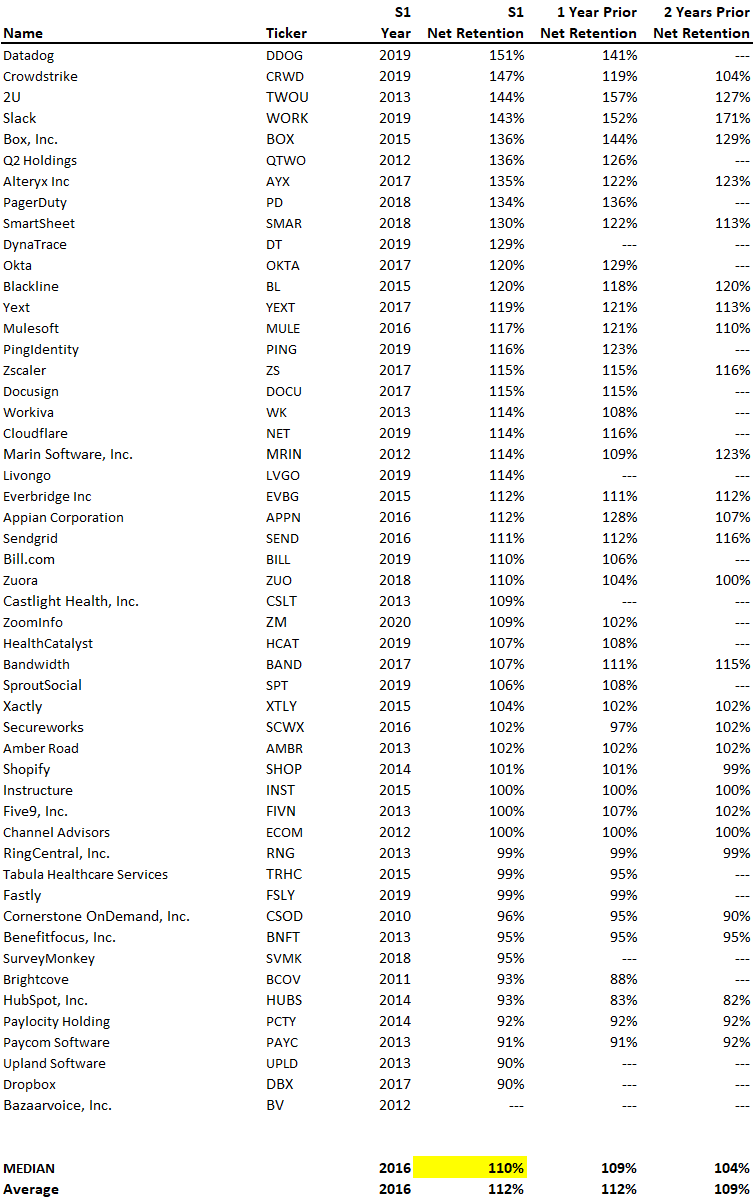110% net dollar retention is the standard
One SaaS metric we monitor closely is net dollar retention. It tells you what percent of revenue from current customers you retained from the prior year, after accounting for upgrades, downgrades, and churn. Formulaically it’s beginning of period revenue + upgrades — downgrades — churn all divided by beginning of period revenue. If that formula yields a number greater than 100%, then growth from your existing customer base more than offset any losses from that customer base.
Similarly, net retention below 100% means churn and downgrades were greater than any growth you enjoyed from the expansion of existing customers. If that’s the case, you need to take action with Customer Success and Customer Support to try and reverse the trend. Generally we find it’s not a product issue, but rather a customer success issue and/or onboarding issue. Even though software is supposed to be easy, it’s not touchless and the customer will expect responsive and thorough customer service, especially for high ACV products. Likewise, if you don’t onboard the customer properly, we’ve found that you’re almost guaranteed to lose them.
So what’s a good level of net retention? To find out, we looked at publicly traded SaaS companies at their IPO and compared it to their net dollar retention today. Unfortunately not every SaaS company discloses this information, and indeed we found 51 companies that shared the data.

On median the net dollar retention was a healthy 110% at the time of IPO. Note that the top 5, which includes names like Crowdstrike and Box, were much stronger showing average net retention of 144% prior to IPO. The top 10 were 139% and the top 20 were 128%.
In summary, net retention is a critical figure: if you’re at 110% you’re in line with the average, if you’re below 100% do a little work to figure out what’s happening, and if you’re ~120%+, you’re in great company.
Visit us at blossomstreetventures.com and email us directly with Series A or B opportunities at . Connect on LI as well. We invest $1mm in growth rounds, inside rounds, small rounds, cap table restructurings, note clean outs, and other ‘special situations’ all over the US & Canada.